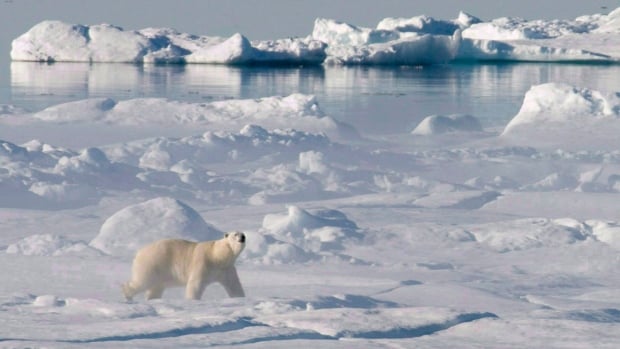Support strong Canadian climate journalism for 2025
An international report says the Arctic is perched on the edge of fundamental social and environmental change as it faces 19 tipping points ranging from loss of summer sea ice to the slow creep of shrubs and trees across the tundra.
"There are quite a number of examples," report co-author Martin Sommerkorn said Friday. "The resilience of the Arctic is not only decided in the Arctic, and the resilience of this planet is not only decided globally, but also decided very much in the Arctic."
Sommerkorn, an official with the World Wildlife Fund's Arctic program, helped write the report for the Arctic Council, a group of eight nations that ring the North Pole. He said the 240-page document is the first to summarize all threats faced by the Arctic, their likelihood of occurring and probable consequences.
Some tipping points will probably be avoided if the world manages to hold climate warming to two degrees. The collapse of the Greenland ice sheet or the end of ocean currents that govern Europe's climate then would be unlikely.
But most of the threats are already appearing. And some are likely to lead to a new normal, even if countries manage to control climate change.
"Several of these regime shifts are definitely at stake even with two degrees warming," said Sommerkorn from Stockholm, Sweden, where the report was released.
Summer sea ice is well on its way to becoming a memory as temperatures in the High Arctic this fall have been 20 degrees above normal. A warmer Arctic means shrubs are creeping northward, replacing lichens and grasses that caribou depend on. Some Arctic waters are already becoming dead zones bereft of oxygen.
Lakes are collapsing as permafrost beneath them melts. Fisheries are on the move, disrupting food webs as some species move north and others find their new surroundings uninhabitable.
Land and sea environments are changing everywhere: from salt marshes and peatlands to river channels and kelp beds. Northerners are finding it harder and more dangerous to travel as once-familiar weather and ice patterns shift.
Sommerkorn points out the changes already underway will be hard to undo or even may be irreversible. Many are linked and reinforce each other.
Climate change is by far the largest driver of all the changes. Sommerkorn points out that members of the Arctic Council, as well as observer countries such as China, emit most of the world's greenhouse gases.
Northerners will have to be resilient to maintain their way of life and adapt to the new Arctic, he said.
"We can set ourselves up to respond and even shape the change that is coming towards us to be better for our well-being."
People across the Arctic will have to learn to work together through their governments to keep up, the report concludes, and northerners need to organize and band together to ensure their concerns are heard.
Southerners must also realize that their climatic and economic future depends on what happens in the Arctic.
"That is also something that is very appealing to people living in the Arctic," Sommerkorn said.






Comments
Until we in the south realize that our selfish consumption of fossil fuels has consequences for our fellow man and fellow creatures in this fragile part of our planet, nothing will change.
www.PlanetInPeril.ca